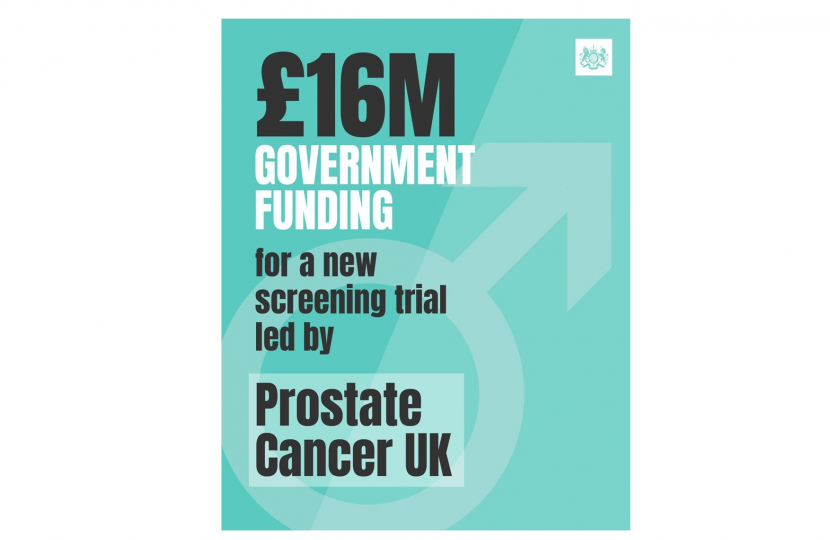
News From Department for Health and Social Care
A major new prostate cancer screening trial is set to get underway in the UK, backed by £42 million of funding from the Government and Prostate Cancer UK – potentially saving thousands of men’s lives. The first-of-its-kind trial will use innovative screening methods such as MRI to detect prostate cancer, and will see hundreds of thousands of men across the country participating.
Prostate cancer is the most common cancer in men in the UK and has no screening programme. It usually has no symptoms until it has grown large and may be more difficult to treat – 12,000 men die of it every year. A way of effectively screening for prostate cancer could find these men before their cancer spreads and save their lives. The trial has the potential to see new screening methods give more accurate results than the current blood tests, which can miss some cancers and often suggest prostate cancer when no cancer exists. Crucially, screening could also spot the disease even when no symptoms are displayed.
£16 million will be invested by the Government for the trial through the National Institute of Health Research and Prostate Cancer UK, who have led the development of the trial, will provide £26 million. The trial is due to start in Spring 2024 with recruitment likely to begin in Autumn 2024.
One in four black men will develop prostate cancer – double the risk of other men. Therefore, to ensure the trial helps reduce their risk of dying from this disease, one in ten men invited to participate will be black men. Participating men in the screening trial will be aged 50-75, with black men eligible from the lower age range of 45-75.
Men at higher risk of prostate cancer due to age and ethnicity will be recruited through their GP surgery and invited to a screening visit.
Updates to NHS website
NHS England will deliver a host of important improvements and updates to pages on its website most used by men, making it easier for men to both find and understand the help and support on offer for certain conditions.
Pages on issues such as prostatitis, testicular cancer, and low sperm count will be updated in the coming months.


